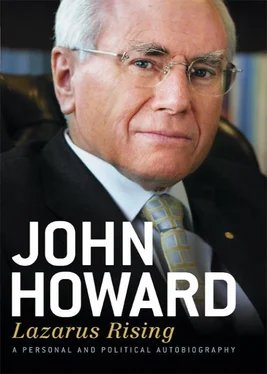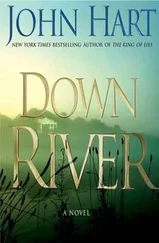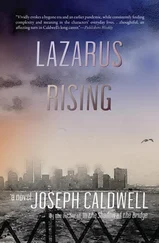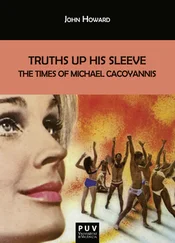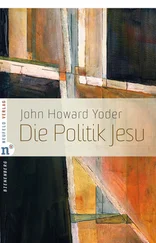Not only was Whitlam’s big-spending and permissive approach to public-service wages growth aggravating the rising inflation and higher unemployment which had become a feature of the Australian economy, but the suspicion grew that there was something irregular, even improper, about the Government’s efforts to borrow money abroad for national development purposes.
The genesis of that suspicion was a meeting of the Federal Executive Council at the Lodge on 13 December 1974. It was an ad hoc meeting which emerged from a ministerial discussion involving Whitlam; the Deputy PM and Treasurer, Jim Cairns; the AG, Lionel Murphy; and Rex Connor, Minister for Minerals and Energy. The meeting authorised Connor to borrow up to $4 billion. The Governor-General was not at the meeting and did not know of it until the next day, itself highly unusual; the loan was described as being for temporary purposes when so clearly it was not. Under the financial agreement, overseas borrowings other than for defence and temporary purposes required the approval of the states through the loan council. It was also unusual that authority was given to Connor to undertake the borrowing; Treasury normally handled such matters through well-established and reputable channels.
The Government was never able to shake the impression of irregularity, especially when evidence emerged of dealings with fringe international financiers such as Tirath Khemlani, a Pakistani commodities dealer. When Australia had borrowed before, Morgan Stanley, a solid Wall Street bank, had usually done the work. Treasury could not understand why such a reliable path would not be followed again.
Labor’s new Treasurer, Bill Hayden, was an outpost of sanity: bright and economically sensible. If he had been there from the beginning, things might have been different. Hayden’s tragedy was that Labor was beyond the point of no return when he brought down his budget in August 1975. Its principal legacy was that of Hayden’s reputation. He came out of 1975 as by far the most credible figure in the Labor Party.
There was a steady drip of press stories, keeping alive the sense of chaos, even scandal, which surrounded the Government. Hayden’s budget was well received, but could not disperse the fog enveloping Whitlam’s team. By September the mood in Liberal ranks had hardened. Many began to argue that the Government was so bad that we had an obligation to force an early election. Remembering what Fraser had said in March, they claimed that the continuing loans saga amounted to ‘reprehensible circumstances’ and that the Coalition would be justified in blocking supply to force an early election.
The Loans Affair, as it became known, ultimately claimed the scalps of both Cairns and Connor. Cairns finally went in July, when it emerged that, despite having denied it to parliament, he had signed a commission letter to a Melbourne businessman. Connor’s resignation on 14 October was the final straw for the opposition; he had continued negotiations with Khemlani after his authority to do so was revoked.
Media pressure grew — typical being a front-page editorial from the Sydney Morning Herald, on 15 October, headed, ‘Fraser Must Act'. He did. That very day Fraser announced that the Coalition in the Senate would vote to defer a decision on the supply bills until Whitlam agreed to have an election. The next day the opposition used its numbers in the Senate to achieve this. The bills deferred were routine ones authorising the spending of moneys on the ordinary annual services of government. If the bills were delayed indefinitely, the Government would run out of legally available funds and the business of government would grind to a halt. In political and constitutional terms, it was the nuclear option. Supply had never been refused or delayed before; there had only been the threat of it in 1974. Then, Whitlam countered with an election. He would not do this in 1975.
Just before his announcement, Fraser assembled the entire shadow ministry, tabled his recommendation that the opposition vote to defer supply, and one by one he asked each shadow his or her view. Along with every other shadow present, I supported Fraser’s recommendation.
This should be recalled, as revisionism about 1975 has included suggestions that Malcolm Fraser had acted unilaterally on the supply issue. There was no dissent in the shadow cabinet ranks. Don Chipp, later to resign from the Liberal Party, form the Democrats and denounce the blocking of supply by Fraser, was one of those present at the meeting who strongly backed his leader’s position. There was enthusiastic support for Fraser’s push at the full Coalition party meeting, immediately following shadow cabinet. The late Alan Missen, a Victorian senator, was the only person to express concern. He stood and said, ‘Leader, you know I have qualms about this.’ Phillip Lynch, the Liberal deputy, replied, saying, ‘Alan, let’s have a talk about it.’ They left the room together. A short while later Lynch came back and said that ‘Everything [would] be okay'. Missen voted with the rest of his colleagues to defer supply.
Labor was understandably bitter at the failure of the Bjelke-Petersen Government to follow normal custom and replace the deceased Queensland ALP senator Bert Milliner with his chosen Labor replacement, Mal Colston. The Labor Party was foolishly stubborn in rejecting the initial request of the Queensland Premier to submit three names from which a choice would be made.
The upshot was that Whitlam was left with only 29 senators supporting him against 30 from the Coalition when the crucial Senate vote to defer supply was taken in mid October. Patrick Field, Bjelke-Petersen’s chosen replacement for Milliner, did not participate in the vote, but this did not alter the fact that if normal practice had been followed, the vote would have been tied at 30 each and supply blocked rather than deferred.
Several months earlier, the NSW Coalition Government had likewise chosen Cleaver Bunton, an Independent, to replace Lionel Murphy, who had been appointed to the High Court. This did not have the same consequences as the Queensland appointment because Bunton voted with Whitlam on the supply issue.
In 1977 the Australian people voted overwhelmingly for a constitutional change, effectively guaranteeing that when a casual vacancy occurred in the Senate the replacement would come from the same Party as the former senator.
Unlike May 1974, Whitlam did not call an election. He was determined to prevail, asserting that as governments were formed by the party having a majority in the lower house, the Senate had no right prematurely to terminate a government so formed by forcing an early election. Politically, he had no option. He would face annihilation at an early poll. Fraser’s biggest challenge was to hold the Coalition together as the weeks of deadlock dragged on.
His argument was as simple as Whitlam’s. Our Constitution gives coextensive powers to the Senate and House of Representatives, so the government of the day needs the approval of both houses to spend money. As the Senate had not given that approval, the Government could not continue to function and should call an election to resolve the issue. Politically, Fraser had to maintain his position. He knew that he would win an early poll, just as Whitlam knew he would lose it. Stripped of rhetorical excesses, it was a titanic clash of political wills between two determined men. A compromise was never likely once the Senate had deferred supply. Fraser did offer to pass supply if Whitlam agreed to hold an election the following May. This was rejected.
Once the two protagonists had staked out their ground, interest focused on who might blink first, and increasingly, as the weeks passed, how or when might the Governor-General act. Whitlam’s operating assumption was that Kerr would always do as he was told. He badly misread his choice as Australia’s effective Head of State. Kerr would be no cipher. No one understood this better than John Carrick. In the days that followed the deferral of supply, he said to me several times, ‘John Kerr will want the judgement of history. He will do the right thing by the office.’ Carrick had known Kerr for a number of years, and well enough to divine that he was not in any way beholden to the Labor Party.
Читать дальше
